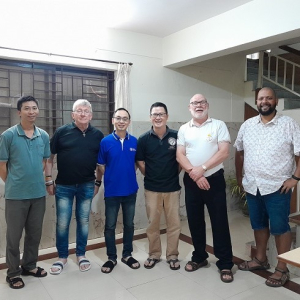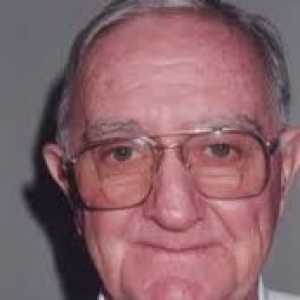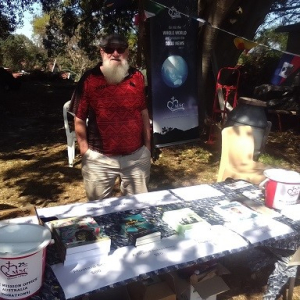Peter MALONE
Khoi's Report
Khoi's Report
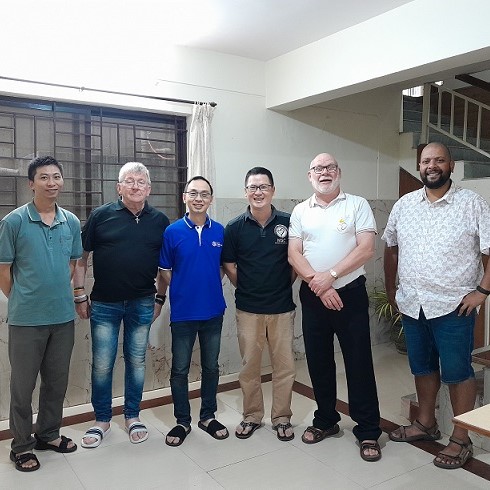
MSC APIA CONFERENCE - BANGALORE, INDIA, 22-28 September 2024
‘Hearts Burning With Missionary Zeal’
Attendance from the Australian Province for this APIA including Kimi Vunivesilevu (on behalf of Stephen Hackett, the Provincial Superior), Claude Mostowik (JPIC representative), Danh Doan and Khoi Nguyen (Formation representatives), Quy Bui (Safeguarding representative).
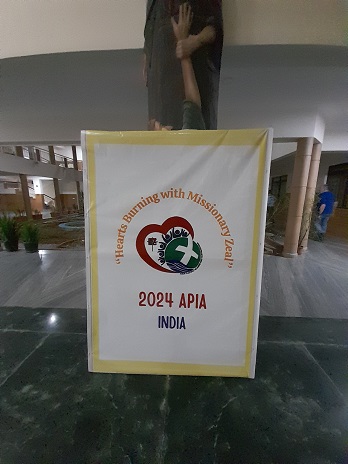
This conference drew about 35 participants in different conferences, including the APIA Secretary, Rey Tibon, the facilitators for the Provincials and Superiors conference (Chris Chaplain), the formation conference (Bram Tulusam and Simon Lumpini), the JPIC conference (Richie Gomez) and the safeguarding conference (James Espuerta).
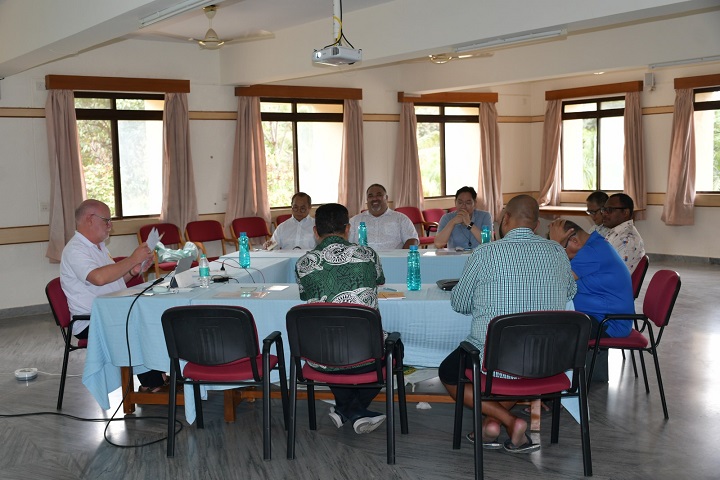
During the conference week, we also visited the Provincial property in Bangalore, which includes the Provincial offices, community and the second scholasticate community.
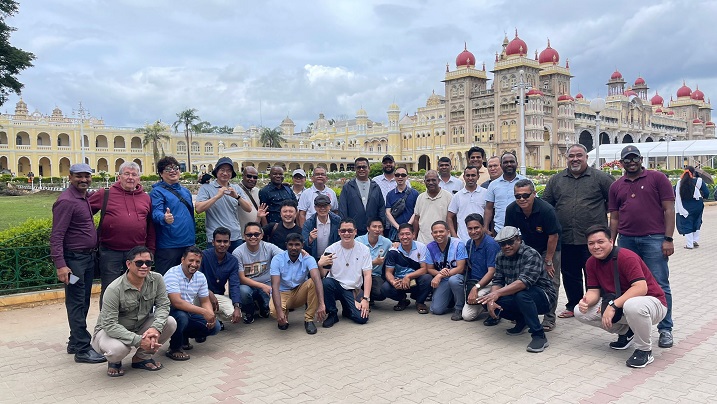
On Thursday, our excursion, we were taken on a bus trip to Mysore (150 kms southeast of Bangalore) to visit the former King's palace, St Joseph's Cathedral and the minor seminary with about 15 seminarians there, completing their last years of secondary school.
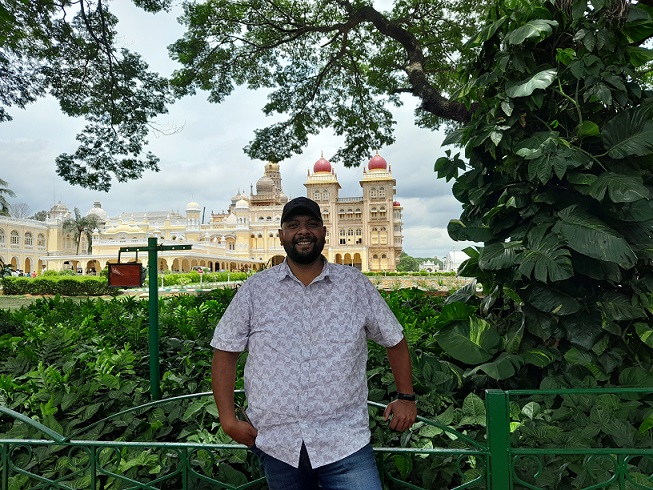
On Friday, our last second day, we presented and submitted our conference reports to the Provincials and Superiors of APIA with recommendations in the areas of formation, safeguarding and JPIC.
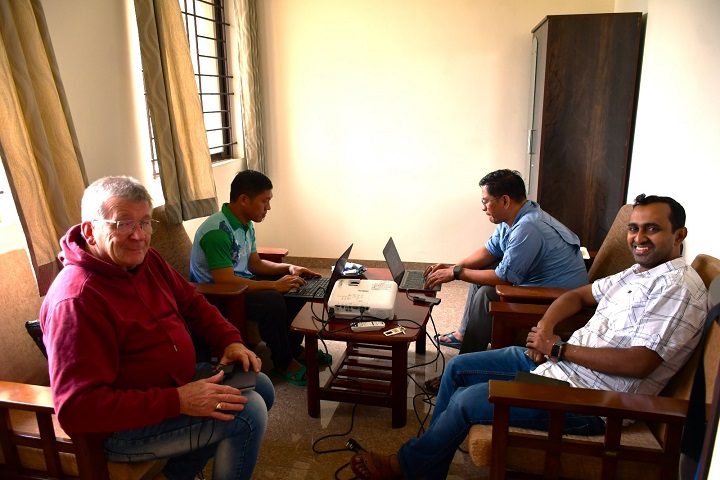
On the last day of the conference, we received input on Artificial Intelligence (AI) given by Sebu Thomas, a diocesan priest as our professional development. The conference concluded on Saturday evening with the closing ritual and the celebration of the birthday of Darwin Thatheus, the Provincial of Indian Province.
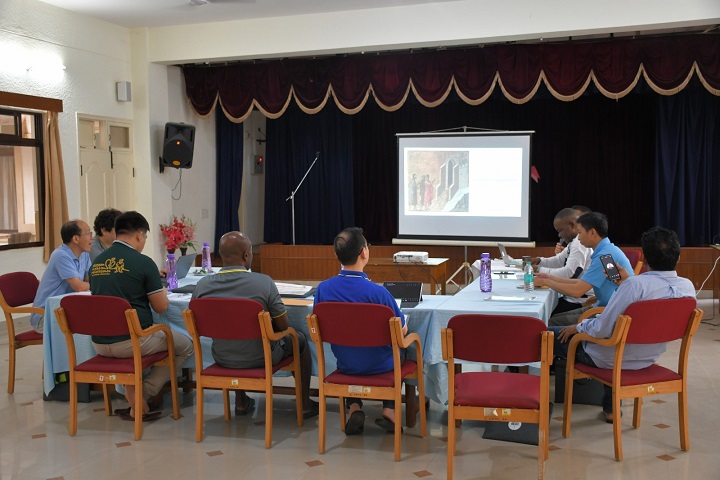
All the participants were grateful for such exemplary hospitality offered to us by the Indian conferes and the dedication of the organisers and helpers behind the scenes.
To be on earth the Heart of God,
Reported by Khoi Nguyen msc.
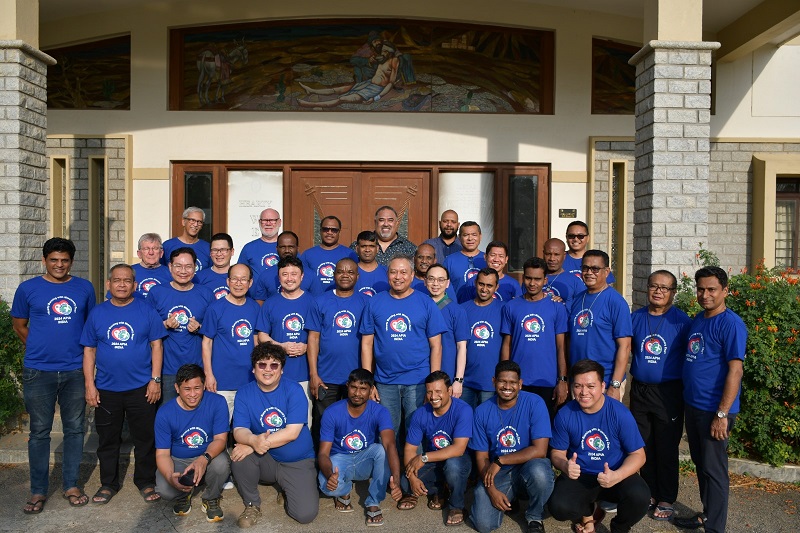
RIP, Arthur Stidwill MSC
RIP, Arthur Stidwill MSC
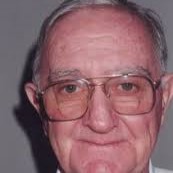
Stephen Hackett has written that Arthur Stidwill died a short time ago.
He was 94 years old, had been a vowed MSC for 56 years and a priest for 53 years. May he rest in peace.
At the celebration of 50 years or ordination at St Mary's Towers with his group, Arthur at centre.
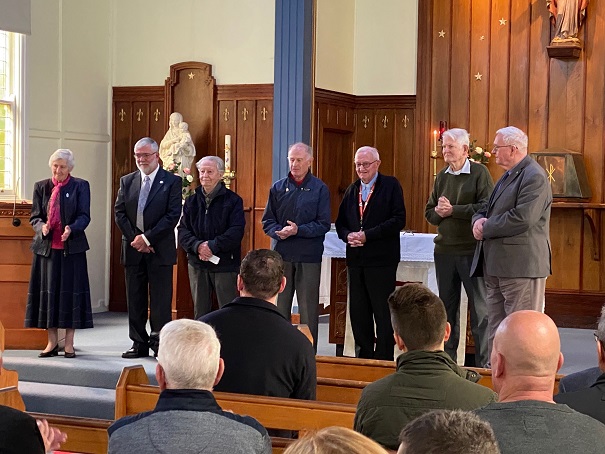
Arthur was one of the first group in 1966 of ‘late vocations’. They did an accompaniment program that year with Frank Fletcher MSC. They made their novitiate with Bob Mitchell MSC in 1967, making their first profession on 27th February 1968. The group then moved to the Sacred Heart Monastery, Kensington, the venue for the first year of St Paul’s National Seminary for Late Vocations with Jim Cuskelly MSC.
With Len Helm who died last week and Ed Travers at the jubilee celebration
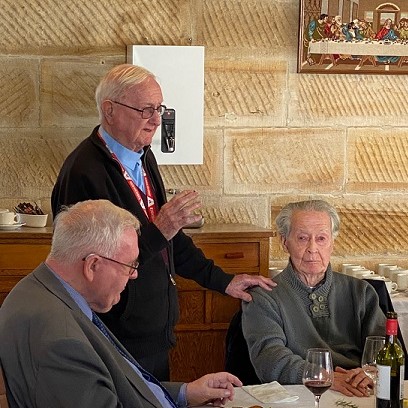
Arthur was ordained on 21st August 9171. He has spent most of his priesthood in parish work, especially in Papua New Guinea, Eastern Papua. In more recent years he has been at Kensington but has done much parish supply work in Lismore diocese, more particularly in Casino.
News to hand in addition: Arthurdied peacefully earlier this evening, sitting in his chair. He felt unwell today and didn’t join the community for lunch. Instead, Peter Guy took lunch to his room. He died about 5:30 pm. On hearing the news of his passing, several of his community members went to his room to pray for him until the doctor arrived. He was wearing his Swans scarf.
And 2023, an outing with Patrick Sharpe and John Franzmann.
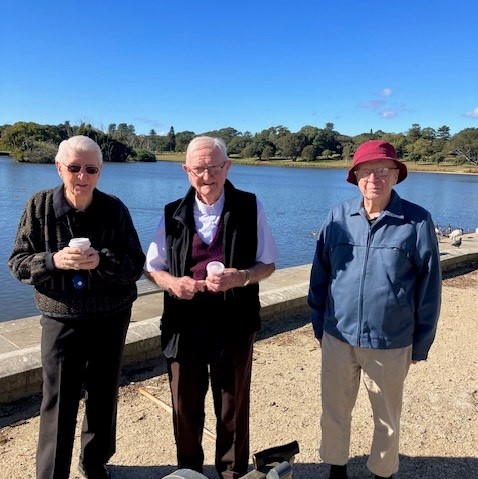
MSC Mission Office, events and travel contacts
MSC Mission Office, events and travel contacts
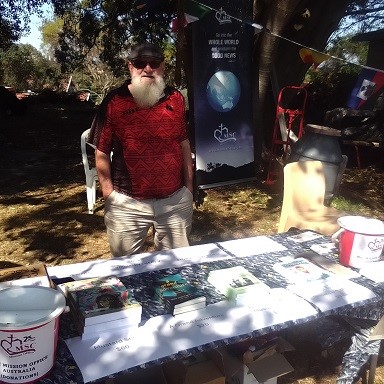
An event:
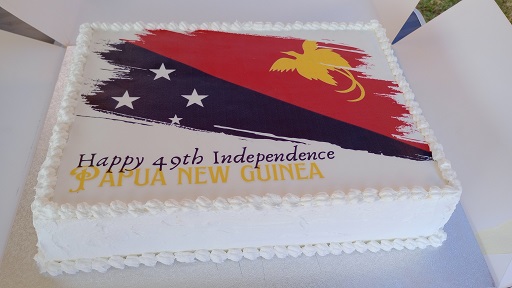
Celebration of the 45th anniversary of Independence of PNG, held at the Monastery, Kensington.
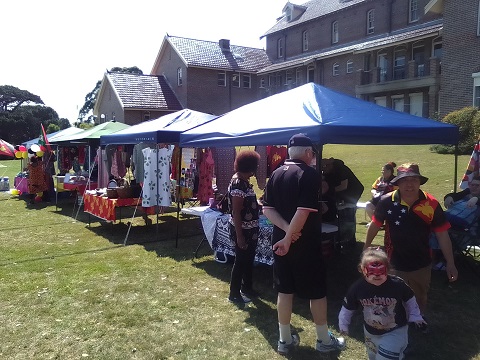
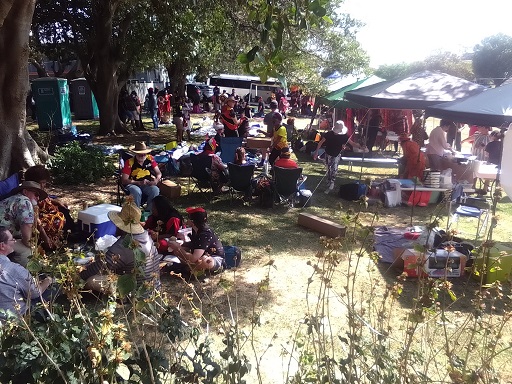
Roger Purcell MSC, director,
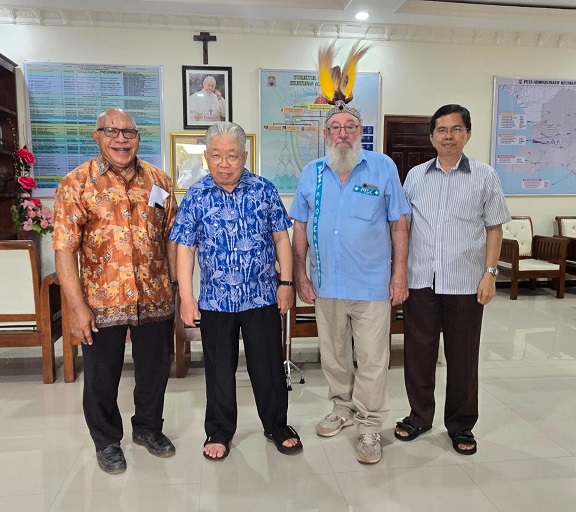
making contacts in Indonesia
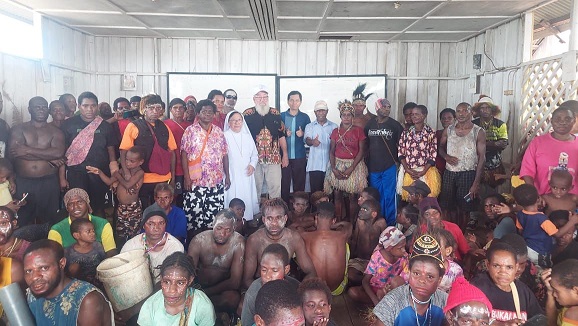
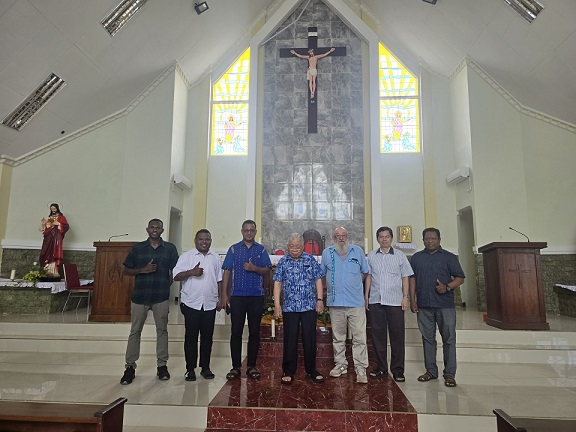
And Congo
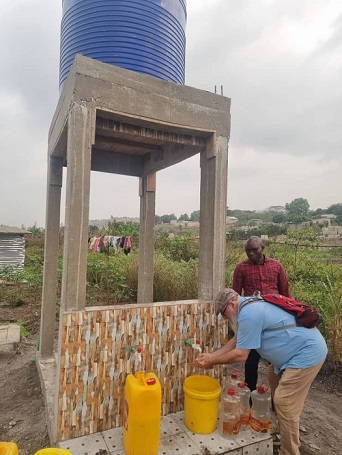
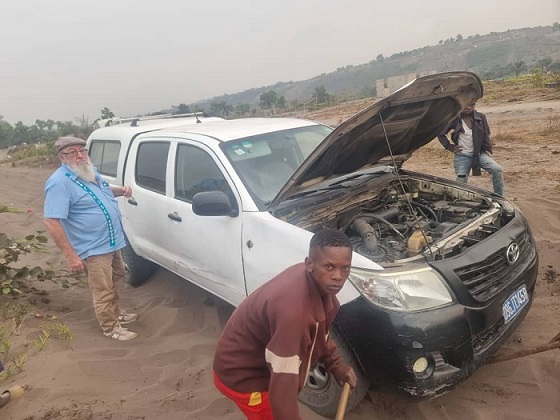
Comandante
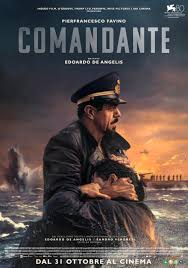
COMANDANTE
Italy, 2023, 121 minutes, Colour.
Perfrancisco Favini, Johan Heldenbergh, Massimiliano Rossi, Silvia D'Smico, Johannes Wirix.
Directed by Eduardo De Angelis.
We don’t see many films about Italian involvement in World War II, especially naval warfare, and, more especially, submarine warfare.
The story is based on actual characters and events, over a couple of weeks in the autumn of 1940. The focus, as the title indicates, is on the submarine, Comandante, Salvatore Todaro, a dedicated man, injured in a training accident and wearing a back brace, devoted to his pregnant wife, a tough but sympathetic commander of his men.
Ultimately, again as the title suggests, the focus of this drama is on the man himself rather than on the details of war although these are important and significant. For this reviewer, the film is the portrait of a humane man, in situations of war, challenge to act in a humane way. Sequences are context for his humanity. However, quite a number of critics and bloggers have complained that there is not enough action in the film, some even suggesting that the focus on the humanity, sentiment, breaks the film down.
For this reviewer, with the focus on the humanity, the portrait is very moving, especially at the end and the final information about the fate of the Comandante.
But, there is quite some action, especially as the submarine tries to get through the straits of Gibraltar, tangles in steel, self-sacrifice to cut the submarine free. There is camaraderie amongst the troops, especially with the Neapolitan cook and his specials and his singing.
The key drama is the submarine’s encounter with a Belgian cargo ship, allegedly neutral, carrying British arms. The Belgian crew are stranded, an appeal to the Comandante, his ethic of doing the right thing means that the Belgians come on board, crowded, two trying to sabotage the submarine, but a greater bonding between the Italians and the Belgians – especially with the offer to make a special Belgian dish and the answer is Fries, something the Italians are wary of, but ultimately enjoy.
The Comandante is played by veteran Italian actor, Pierre Francesco Favini, always convincing t inhe wide range of roles he performs.
There is a mention or two of Mussolini and the film offers a reminder of Italy in World War II but also a reminder of humanity and integrity in leadership.
- World War II story, Italian involvement, submarine warfare in the Atlantic?
- Based on a true story, Salvatore Todaro, in the Italian Navy, his personality, command of men, leadership in the submarine, decisions, strategies, his relationship with his wife, voice-over messages to her, her pregnancy? His humanity, treatment of prisoners of war? His subsequent history, reputation, premonitions of dying in his sleep, his death, the Belgian sailors visiting his wife and daughter after the war? The credits and thanks to his daughter?
- The atmosphere of the opening, his ejection into the sea, the drowning experience, rescue, rehabilitation, having to wear the brace, medical advice, the old man and his writing the quote in Greek (its later message and the Belgian translating it)? The scenes with his wife, her pregnancy?
- Taking command of the submarine, the marching of the men, his premonition about the sailor and the later operation, his relationship with the men, morale speeches to the men, Marcon and the experience sailor, friendship, advice? The younger members, his interactions with them, with the cook, the menus, the reward of the gnocchi, his singing the Neapolitan song?
- The visualising of the submarine, the exteriors and reconstruction, long tracking shot, the interiors, the cabin, the accommodation, the conning tower, the surface? In comparison with the merchant ship, the British ship?
- The management of the submarine, in war combat? Comparisons with the Germans? Mentions of Mussolini and fascists? Salvatore and his humanity?
- The strategies for passing through Gibraltar, going low, the dangers, reverberations? The tangling in the nets? The young sailor, volunteering, going out, the drama of severing the cables, his death, the requiem and the tributes?
- Out in the Atlantic, the encounter with the Belgian cargo ship, Belgian neutrality, carrying British arms? The attacks on the planes flying over? The attack on the ship? Destroying the ship, the men in the water, the boat?
- Rules of war, Salvatore and his decisions, Marcon and his opposition, the young Belgian coming on board, able to speak Italian, translate, the discussions? The prospects? The decision not to drown the sailors? Towing the boat? Taking them on board, the squashed accommodation, food, the humane sequence of the Belgian’s explaining how to make fries and the Italians amazed, eating them? The cook? The singing?
- The two rebels, pulling out the cables, the effect of the Belgians, Ion Salvatore, hitting them? Putting them in the conning tower? The dangers of flooding and death?
- The British ship, the appeal, the hesitation of the British captain, his deciding to let them go to safety?
- The progress of the submarine, to the Azores, safety?
- The final discussions with the Belgian captain, his gratitude, saying he would have all the men if the situation were reversed? The young Belgian, the story, his background, on the submarine, translations, friendship?
- The aftermath and the sailors visit to the wife and daughter?
- Some complaints that there was not enough action – but the film more of humanity?
Figurant/ Strawman
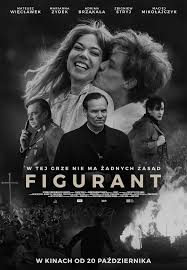
FIGURANT/ STRAWMAN
Poland, 2023, 103 minutes, Black-and-white.
Mateusz Widclawek, Mariana Zydek, Adrian Brzakala, Zbigniew Stryj, Maciej Mikolajczyk.
Directed by Robert Glinkski.
Unexpected and arresting.
At the centre of this film is the Polish bishop, Karol Wojtyla, in the 1950s and the 1960s, years before he was elected Pope John Paul II. However, he is not the central character – which makes this drama more intriguing. The title indicates the intrigue. Figurant means a supporting character, even one who does not speak. The English translation is strawman. And the question is whether the future Pope in this drama is the figurant or it is the official who pursues him in secret surveillance over the years.
One of the striking features of this film is that it is in black-and-white (a glimpse of colour towards the end, stained-glass windows, light, moment of grace). Life in Communist Poland in those years was very much black-and-white, a socialist government was anti-Catholic Church, ideologically atheist, determined to undermine the Church, practising Catholics, and, especially, the clergy. Close observation, secret photos and recordings, arrests and interrogations, torture, and, when no indications of guilt, the fabrication of scenarios to destroy clerics. And fostering dissent between Bishop Wojtyla and Cardinal Wyszynski of Warsaw.
So, indeed, the central character is Bronek Bundy (Mateusz Wieclawek), a talented photographer, war orphan and brought up by nuns whom he resents, approaching government officials for a job – and his appointment for surveillance of Father Wojtyla, newly made a bishop, looking for suspicious contacts, observing him and photographing him as he comes out of his Presbytery over the years. Bronek also ingratiates himself with a young priest who is doing his PhD under Wojtyla’s supervision.
The actor portraying Karol Wojtyla looks sufficiently like him from the past but at various times there are inserts, newsreel footage of the man himself, episodes like raising the cross in the new city of Nova Huta, and protests by Catholics put down by armed police.
Throughout the film, there is also the personal drama of Bronek, his relationship with Marta, marriage, pregnancy, miscarriage, depression, and growing suspicions about her husband’s behaviour and secrecy. The other drama for Bronek is his ingratiating himself with the young PhD student priest, discussing philosophical issues of love (with reference to Archbishop Wojtyla’s own writings of the time), the developing of friendship but which is based on deceit, leading to a terrible conclusion with the priest who has been set up, drugged in a compromising situation.
The film is very interesting in itself but will be of greater interest to Catholic audiences, especially older Catholic audiences who are more familiar with the life of John Paul II and will be intrigued by this picture of his experiences in his Poland, years before Solidarity and his years as Pope.
- The title, the supporting role, the silent role? The English translation as strawman? Bronek as the strawman? Archbishop Wojtyla as the strawman?
- The relationship between this story and actual characters? Spying in the 1950s and 1960s Poland? Targeting church officials? Targeting Wojtyla? Interrogations, secret photography, surveillance, reports, and the fabrication of stories, especially with father Michal?
- The use of black-and-white photography, sense of the past, sense of realism? The integration of newsreel footage, of events like the raising of the cross, the riots, actual sequences of Archbishop Wojtyla? And the significance of the moment it colour at the end, stained-glass window, indication of God’s grace?
- A film of the 2020s, decades after the fall of the Soviet Union, decades after these events in Poland, and memories of the solidarity movement in the 1980s? Communist Ideology, socialism, atheism, the Catholic Church as enemy, the surveillance of Cardinal Wyszynski, the surveillance of bishops and clergy? The stances taken by Catholics, riots, protests, the police with guns and bullets?
- Audience knowledge of the life of Karol Wojtyla, in Poland, work, seminary, ordination, Roman studies, his thesis, love and responsibility, publications, the authorities reading his book, stating his ideas? Parish priest and ministry, reputation? Becoming auxiliary Bishop, the issue of the Archbishop, the role of Cardinal Wyszynski, the authorities setting up hostilities, Wojtyla becoming Archbishop of Kraków, the raising of the cross, the new church at Nova Huta, his supervising Father Michal’s PhD, philosophy, theology, ethics?
- The introduction to Bronek, his age, with the camera, the initial photos, in black and white, his skills, walking around the city, at public events? Going to the Cathedral, listening to the sermon? The ideas of Wojtyla? His seeing Marta, her chatting and friend, following her, the conversation, photography, at his place, nudity, photography, the sexual encounter, sharing with her, the outings, the proposal, the ring and her acceptance? His seeking permission from the officials, her parents’ Catholic attitude, the wedding, her pregnancy?
- Bronek and his studies, presenting himself to the officials, the good impression, the interview, the chocolate, his status, secrecy from Marta, his mission, surveillance of Wojtyla as a priest, the sequences at the door, the range of people, talking, his touch, the kisses, the interrogations, the dying woman and her child and the ransacking of her house, secretary, her infatuation, her son, the polio injections to try to check whether the boy was the priest’s son, the officials and their responses, praise, medals and decorations, planning scandals and lies?
- Bronek’s absence, Marta suspicions, his boasting of promotion, the new apartment, her fall, his absences, the miscarriage, her depression, not communicating, in the institution, coming back home, reconciliation, the new pregnancy? The discussions with her friend, Bronek and his spy hole against his wife?
- Father Michal, as a person, as a priest, his ministry, his studies, supervision, the confrontation with the officials, the bad cop, good cop routine? Bronek as the good cop, persuasive, quoting his poetry, the gift of Wojtyla’s books, signing the document? The discussions, the seeming friendship, the hike on the mountain, the revelation that Bronek knew the priests subject for his thesis? The disillusionment? The priest becoming the victim, the request for the anointing, the girl in the setup, drugging him, the compromising situation, the photos, on the mountain, the seemingly chance encounter, Bronek and the photos, wanting him to sign the document, to bump boy Tiller’s apartment? The priest throwing himself from the cliff with such a moral dilemma?
- The consequences for Bronek, the surveillance over the years, his having to report, his estimation of Wojtyla, seeming admiration?
- Going home, the confrontation with his wife, her friend, her leaving, the empty house?
- The impact of all this work and secrecy over the years, the relationship with his wife, her walking out with the baby, the death of the priest, his going to the confessional, Wojtyla, the questioning about the parable of the prodigal son and its ending, his confessing about his marriage and his fault. The killing of the priest, but his leaving the church, and the glimpse of stained-glass, colour, grace?
- The years passing, older, photographing, seeing his wife, the boy throwing the paper plane, his response, looking at the boy, looking if his wife – and the end of the film at that moment? The audience supplying possible scenarios for the future?
Twelve 2, The
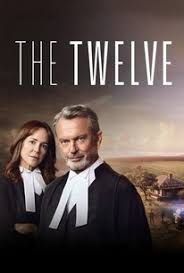
THE TWELVE 2
Australia, 2024, 8X 45 minutes, Colour.
Amy Matthews, Errol Shand, Kris McQuade, Tasman Walton, Josh McKenzie, Anthony Brandon Wong, Stefanie Cacama, Luke Pegler, Feysall Bazzi, Sam Neill, Frances O'Connor, Anthony Hayes, Gerard Lebowski.
Directed by Stevie Cruz Smith, Jocelyn Moorhouse, Ben Young.
The television series, The Twelve, made quite an impact on television audiences, a focus on a trial, some quite significant members of the jury, others on the periphery. And, the trial lawyers, played by Sam Neill and Marta Dusseldorp, as well is the accused, played by Kate Mulvaney, were well written roles. And, there was always the mystery of the guilt or innocence of the accused.
This is the second series. The only continuing character is that played by Sam Neill as a defence lawyer, always self assured, charming, the touch of the ruthless. In this version he has a co-worker, played by Frances O’Connor. There are two accused, Amy Matthews and Errol Shand, the lawyers defending one each. Prosecutor is portrayed by Fayssal Bazzi.
The setting is Western Australia, a country town, the death of an elderly woman farmer, rather a harridan, played effectively by Kris McQuade. Her daughter and her lover are accused of her murder.
The screenplay this time, after a prologue indicating the setting and the characters, focuses on the trial, meetings outside the courtroom, but mainly flashbacks indicating the different perspectives on the situation, the death, possible scenarios, and unexpected aspects in the final solution.
And, as with the original series, there is strong focus on several of the jurors, a young woman caring for her sister who, in fact, is her daughter, a young man, on drugs, involved in money deals, an ageing and dying Asian character clashing with his children, a woman caring for her elderly mother discovering aboriginal connections…
The court scenes and cross examinations are always very interesting, there are twists and turns on the prosecution and the defence, some tense human relationships.
The series has several directors especially Jocelyn Moorhouse.
- The popularity of the first series? The series based on an original Dutch program?
- The adaptation to Western Australia, the country town, the streets and buildings, the courthouse, hotels and motels, the countryside and the farms, homesteads? The musical score?
- The structure of the series, the introduction to the crime situation, the investigators, the arrests, the lawyers and visits to the accused, the selection of the jury and the discussions about who should be on the jury? The judge? The flashbacks to Bernice, Sasha and Patrick? The cumulative effect of the flashbacks, and the development of the story of particular genres? The dramatic effect? The twist at the end, Thelma and her intervention?
- The dramatic impact of the court proceedings, the prosecutor and his stances, less experience than Colby and Meredith, their skills, interrogations? The wide range of witnesses and testimonies? Dramatic interactions? The focus on the jurors and their responses? The assistance to the prosecutor and offenders?
- The core of the plot, Bernice, age, hard work, harsh personality, mean minded, the response of the town, hostility? Sasha, her age, working with her mother, her mother’s control over her? Yet her daughter’s love? Patrick, the breakdown, getting the lift, the relationship with Sasha, Kelly and the children and his visits to them, the relationship with Sasha, passionate on her side, his response to her? Bernice’s disapproval, criticisms of Patrick, criticising her daughter, observing, getting Sasha to withdraw the money, the $50,000, visiting Patrick at the motel, giving him the money, his taking it? His giving it to Kelly?
- Audience response to the personalities of Sasha and Patrick, during the affair, side-by-side in the prison, the advice to look straight ahead in the court? The reality of the pregnancy, the birth of the baby, Sasha wanting to visit, the visit to the prison?
- The death of Bernice, in the well, the possibilities, the issue of the well and it repairs, the company manager, his presence, confronting in the court, hostility towards Bernice, Colby surveying his back entry, his admission of changing the lights?
- The neighbours, farming, lesbians and attacks, the death of the dog, the visit, the visit, questioning in court?
- The focus on the genres, in court, the discussions, Winston as foreman, the range of men, the range of women in, behaviour, friendships, out-of-court meetings?
- Winston, his wealth, the mill, terminal cancer, the nurse, weary, friendship, the marijuana, the visit of his son and daughter, their neglect, his severity, his daughter reporting the nurse, the substitute nurse? The visit to the club? The friendship? His reaction to criticisms about parents and their treatment of children, wills? His final decision, selling the company, dividing the money, the final scene with his son?
- Joey, young, his father, friendship with Pete, his girlfriend, the drugs, money needs, the drive, the crashing of the sign, the repairs, the payout to the mechanic, borrowing from the bank, Peter and his drinking, giving him the drugs, people dying, the interrogations, his lying, his girlfriend and her finally walking out? Pete’s father, asking him to be the football coach? His behaviour with the other jurors? The owner of the pub, genial, on the jury, the night of celebration at the pub? His father and the money for buying the ring, for reconciliation? Continuing the drugs, in the bar, the bartender, his being overcome, going to the police, his confession, driving with his father, not participating in the jury?
- Thelma, looking after her mother, dementia, the neighbours, killing the hens, throwing the eggs, the punctured football, Thelma and her friend, the confrontation with the neighbours, challenge about her mob, issues of racism, questioning her mother, the mention of Bernice, going to the former home, getting the documents, photocopying them, her reaction? Her outbursts against her mother, her partner coming him down, her feeling of her to discovering the truth about her origins, racial prejudice?
- Claudia, at home, with her sister, working at the bar, severe father, severe mother, the issue of the rollerblades and the little girl envious, Claudia and her age, with the jury, serious, going out with the gay couple, drinking, admitting the truth about her daughter? Later at the party? Her mother forbidding her to go to the holy communion ceremony? The little girl leaving? Claudia confronting her parents? The continued anxiety, the confrontation with her mother, her daughter overhearing the truth, running out, hit by the car, hospital, the visits, Claudia inviting her to go rollerskating?
- The Muslim nurse, at work, comments, the invitation to her home, her concern about Winston and his harsh reaction to her?
- The young woman, her ex-husband, the interactions?
- The smug character, knowing all about the town, the money deals, presumption of guilt, reactions to his assertions?
- The range of people interviewed, their comments, their opinions, Sasha is close friend and her outburst against Patrick? The doctors and their opinions, the detective from Perth, the manager of the motel and his playing computer games and accuracy of memory?
- The revelation about Bernice, the affair, the family reaction, going to the Centre, giving birth, giving up the child? Her knowing that Patrick was the child? The flashbacks to the confrontation, the revelation of the truth, the reason for Bernice giving Patrick the money, wanting the child destroyed, Bernice and the gun, Sasha and her defiance, Patrick hitting her, going for the ambulance, Sasha, the body, her ability to carry a heifer, carrying her mother’s body, putting her down the well, her motivations, anger, love for Patrick, the baby?
- Meredith, Colby and further information, the estrangement, her visiting Sasha, the cross-examination the court, Colby and the revelation about the relationship, defensive Patrick? Sasha and her anger at Meredith? Meredith and the phone call to Chris and the children, his filing separation papers? Her defeat?
- The prosecutor, the attack on Sasha, her breaking down, the adjournment?
- Colby, reconstructing the situation, exonerating Patrick?
- The audience, the added accumulation of flashbacks, what might have happened, what did happen, changing loyalties, jewellery, the details of the discussions, orderly, good arguments? The decisions?
- The audience seeing the truth, Patrick being freed, his attempts to save his mother’s life? Sasha, sympathy for her, but her decision against her mother? Her going to prison, the prospect of her child? And the revelation that she was guilty? But the final irony of Patrick saying he had given the money to Kelly, his digging it up and disappearing?
- A satisfying mystery, life in Western Australia and community, relationships, violence, the crime, the evidence, the flashbacks, the jury’s decision?
No Man of God
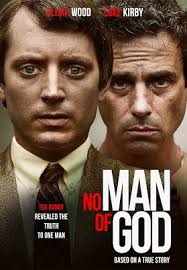
NO MAN OF GOD
US, 2021, 100 minutes, Colour.
Elijah Wood, Luke Kirby, Aleksa Palladino, Robert Patrick, W. Earl Brown, Christian Clementson.
Directed by Amber Searley.
This is one of the many films about serial killer, Ted Bundy. There were documentaries before his execution in 1989. There were documentary investigations by writer-director, Joe Bellinger (who then made the feature film Extremely Wicked, Shockingly Evil and Vile).. In the 2000s there seemed to be an appetite in the television watching public for dramas about serial killers including Bundy.
This film is based on records of interviews with Bundy. It opens with an outline of his life, the crimes, his being in prison, his attitude towards the media… italso indicates his execution in 1989.
In the mid-80s, the FBI was developing profiling. Bill Hagmaier was one of the young experts and took on the interrogation and profiling of Bundy. The film is mainly a sequence of the interviews, initial suspicions, Bundy manipulating, Hagmaier’s responses, increasing openness and discussion, Bundy’s self-defence, self-promotion, something of a friendship, but Hagmaier’s constant belief in Bundy’s guilt.
Elijah Wood is the surprising casting as Bill Hagmaier. However, the performance by Luke Kirby as Bundy is extraordinary, smooth and narcissistic, often erratic and overpowering.
The film ends with Bundy’s execution, the final discussions between the two, Bundy’s admissions, head shaved, preparing for execution – and, with various political complications, Hagmaier not permitted to attend the execution.
Those interested in Bundy, Bellinger’s documentaries and his feature film are well worth seeing in connection with this film.
- The title? The focus on serial killer, Theodore “Ted” Bundy?
- The film reminding audiences of Bundy, the television news prologue announcing his execution after eight years in prison, memories of his crimes, his public personality, media?
- The focus of the FBI, investigations of crimes are across states, the interest in Bundy, the 1980s, the Reagan era, the interest in profiling? The headquarters, the five men chosen, the briefing with the head, the issue of Bundy, Bill Hagmeier accepting the challenge?
- Bill Hagmeier, Elijah Wood’s presence and performance? His family background? As training, psychology interest?
- The bulk of the film as conversations between Bundy and Hagmeier, the transcripts, extensive, over five years, their being organised for dramatic purposes? The effect of watching Bundy and Hagmeier and their interactions, psychological interactions, game players, bonding, admissions, friendship? All
- Luke Kirby, his performance as Ted Bundy, intense, the surface charm, the inner drives, manipulation, narcissistic, psychopathic attitudes, his past in controlling interviews, his interest in profiling, especially The Green River murders, the initial response to Hagmeier, his writing Bundy letters, Bundy setting out his limits, but relenting? Tape on, tape off? The intensity of the discussions, the revelations about Bundy’s psyche, his behaviour, family relationships, attitude towards the women killed, his brutality? The cumulative effect of the discussions, Hagmeier finally telling Bundy that his motivation for killing is because he wanted to?
- The encounter with the warden, over the years, sympathy, lack of sympathy, the message about not attending the execution?
- The passing of the years, the effective selection of the conversations and the cumulative effect? On Bundy and his admissions, secrecy, confiding in Hagmeier, taunting him that he could be, in other circumstances, the same as Bundy (and the glimpses of Hagmeier driving his car and looking at the woman…)? The effect on Hagmeier, understanding Bundy? Reporting to his head?
- 1989, on death row, the governor’s suddenly signing the death warrant, the short time for appeal? His lawyer, her hostility towards Hagmeier, her tactics? The introduction of the church minister, the discussions, Bundy confiding in him, then the revelation that the governor had no intention of changing?
- The pressure on Hagmeier, knowing that Bundy was guilty, observing the tactics of the lawyer, the religious interview, the appeals, knowing that the decision came down to him because of his knowledge of Bundy? His decision?
- Bundy at the end, head shaved, the Bible, the talking with Hagmeier, the admissions, Hagmeier wanting families to have some satisfaction of knowing that he admitted his guilt? Some of the stories and the details? Then his being refused a seat at the execution?
- The consequent information about Hagmeier and his talent and skills and reputation for profiling?
We Might as Well Be Dead
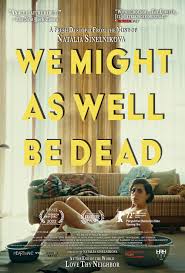
WE MIGHT AS WELL BE DEAD/ Wir könnten genauso gut tot sein
Germany/Romania, 2022, 93 minutes, Colour.
Ioana Iakob, Pola Geiger, Jorg Schuttauf.
Directed by Natalia Sinelnikova.
This is a German-Romanian coproduction, and drama, some comedy, satire with serious intent.
The setting is a gated community, the audience seeing a family trying to enter but rejected. In charge of the community is Anna, obeying regulations, supervising, but with difficulties with her teenage daughter, Iris, who locks herself in her room, thinking she has the evil eye.
At first, the gated community seems ideal, the range of people there, the comfortable home units, self-sufficiency, interactions. But, the disappearance of a dog sets up a chain of events which leads to some disaster.
Ann ais under some suspicion, she goes looking for the dog, is seen by a couple who think there is a prowler, they report to her. Further complications with her daughter, her setting up evidence to blame a poet who runs the elevator and who is targeted by the community. The community then unites, in fear, self-assertion, also scapegoating – and, eventually, ousting Anna and her daughter.
The film is made with a European sensibility, European audience – and so appreciating it, many will find it difficult to identify with.
- The tone of the title? Realistic? Ironic?
- The setting, the gated community, the grounds, the building, the interiors, lavish vestibule and style, corridors and rooms? The surrounding countryside? The musical score?
- The opening, the music of the Carol, the family hurrying through the forest, to the compound, entry, interview, difficulties, not accepted? And the ending, Anna and Iris hurrying away from the building, encountering the family in the forest, the music of the Carol?
- Anna, six years of the compound, her role, supervision, the public announcements, creating the mood of the residents? The surveillance, touring the grounds? The interrogations and the formula for acceptance? Announcing the festivities, participation? Her own problems with her daughter, locked in the room, the opening for the dog, her communicating with Iris through this? Her interactions with the other residents?
- Iris, the issue of the evil eye, her friend wanting to get the evil eye, Iris to nightmares, the various fates of the residents, her prophecies? Her age, relationship with her mother, refusing to come out? The reaction of the residents?
- Anna, out looking for the dog, observing the husband and wife, their emerging, thinking that there was a prowler? And are not telling the truth?
- The older ringleader of the residents, the issue of the dog disappearing, his continued reactions, at the party, drinking, his denunciations, rallying the residents, complaints, accusations, criticisms of Anna, the golf clubs as weapons, developing the mindset of the residents? Bringing the dead animal, stating that it was the missing dog? The buildup of the atmosphere, the range of residents supporting him, the issue of the couple, the injury, making demands? And at her good friend, turning against her?
- Anna, trying to cope, to continue her work, to control the residents? Her scapegoating the poet, his selling his poems in the elevator, working in the basement? The residents turning on him, his expulsion?
- Iris emerging, the group turning on Anna and her daughter, the denunciations, the expulsion?
- The community offering an allegory of enclosed community, leadership, rebellion, influence, scapegoating, truth and fantasy, cruelty?
Goya Murders, The
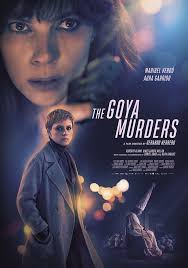
THE GOYA MURDERS/ EL ASESINO DE LOS CAPRICHOS
Spain, 2019, 95 minutes, Colour.
Maribel Verdu, Aura Garrido, Roberto Alamo, Gines Garcia Millan, Daniel Grao.
Directed by Gerardo Herrera.
The tone of the title suggests a murder mystery. And, it is, a Spanish murder mystery and investigation – which could be remade in any culture, the chosen artist being different.
There are several murders in the film, the victims made to pose in the manner of paintings by Goya. Which leads to suspects in the art world, collectors, restorers, experts on the history of art.
The central characters are the police, a tough investigator played by veteran Maribel Verdu, single-minded, harsh, a past, completely dedicated to work, looking down on the assistant who has been appointed to her, finding fault, limitations, but also relying on her for the investigation. In the background there is a police Commissioner, secret relationships, and also a journalist investigating the case, betraying the investigator, becoming a victim.
The enjoyment is in the mystery, the investigation, the backgrounds of the victims, the connections to Goya, the betrayal by the journalist and giving out information, the secret life of the central character, the ordinary life of her assistant and her family, the final revelation of the murderer and the motivations.
- Popular murder mystery and investigation, in the context of the art world, and prints by Goya?
- The Madrid setting, the crime settings, the world of art and auctions, collectors, police investigations? The musical score?
- The focus on Carmen, her personality, her past, relationships, pregnancy and termination, complete commitment to her work, her relationship with the Commissioner, her relationship with the journalist, working with Eva, looking down on her, treatment, ignoring her, travelling the car, Eva wanting respect? The work, detection, personal life, her drinking?
- The murders, the posing of the victims like Goya Prints, investigating the victims and their lives, the art connections, the parents of the murdered woman? The further murders and posing is? The consultation with the art expert, his explanations, willing to assist?
- The police methods, keeping the information from the press, the Commissioner, his private life, family, the relationship with Carmen? Men and her relationship with the journalist, giving him leads? Her sense of betrayal and his television interview, the need to change police tactics, victims, context, the Goya connections?
- The journalist, his own investigations, the relationship with Carmen, the TV interview, tracking down the potential murderer, his own death?
- Eva, the contrast with Carmen, enjoying the night out, but asking for respect from Carmen, her relationship with her husband, the children, Carmen’s impatience with them? The lead, the art expert, the stealing of a Goya painting, the auction, his presence, the bids, his arrest?
- Murder mystery, investigation, differences?
Out in the Open
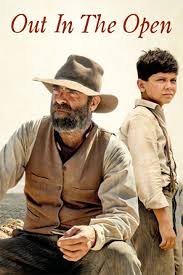
OUT IN THE OPEN
Spain, 2019, 103 minutes, Colour.
Luis Tosar, Luis Callejo, Jaime Lopez.
Directed by Benito Zambrano,
For audiences interested in a different kind of drama, Out in the Open is well worth seeing.
The setting is Spain, 1946, a decade after the Civil War, but oppression of some of the citizens, commandeered to live in dismal circumstances, building developments. With the desert setting, and the action moving out from the village, many have noted the look and atmosphere of an American Western. And, in some ways, the action fits into the traditions of the Western.
The focus is on a young boy who runs away from the village, leaving his family behind, hoping to go to the city, prosper, return and redeem his family. The foreman in charge of the village sets off in pursuit with tough henchman, trying to track down the boy.
There is a complication when it is gradually revealed that the foreman was sexually abusing the boy, another motivation for his attempt to escape.
A Shepherd, played by veteran actor Luis Tosar, encounters the boy, the boy suspicious, the Shepherd helping him with food and drink, their travelling together, eventually encountering the foreman and his thugs, fights, shootouts, complicated by the fact that the Shepherd as with some of the thugs, served with Franco in Morocco.
So, the issue of sexual abuse, the escape of the boy, the merciless pursuit, the role of the Shepherd, defending and saving the boy, self-sacrifice.
- The title, literal, the deserts of Spain, the open plains, the mountains, towns and villages, ruins, buildings and wills? The musical score?
- 1946 setting, 10 years after the Civil War, poverty, bosses and foremen, miners, the families in subjugation, slavery, living in caves, work, loss of rights?
- The comparison of this film with American westerns, the visuals, the characters, the action, the search in pursuit, the violence?
- The situation, the boy, seeing him out in the countryside, with his sister, the plan to escape, the money, stealing the watch and the compass, leaving his jacket on the road? His intention to go to the city?
- The situation, the foreman, the relationship with the boy, predator and abuse? His role in the village, dominance, treatment of the boy’s parents, interrogation of the girl? Rounding up his posse, brutal personalities, former soldiers in Morocco? His wanting no harm to the boy?
- The boy, eluding pursuit, hiding, falling down the cliff? The encounter with the Shepherd, his fears, hungry and thirsty, wary? His response to the Shepherd?
- The Shepherd, the small number of sheep, on the move, intending to travel to the Highlands, to his sister, revelation of his past as a soldier in Morocco, the atmosphere in Morocco, fighting and deaths, his reputation?
- The bonding between the boy and the Shepherd, protection, nourishment, gradual breaking down barriers, talking, the boy reluctant with his story?, The wells? The boy and the two-hour journey with the donkey, to get the water?
- The foreman, ruthless, rounding up his posse, his commands, the pursuit? The posse, their encounter with the Shepherd and the boy, the confrontation, overcoming the Shepherd, cruelty, setting the sheep throats, the dog, throwing them down the well, dragging him along the ground? The boy hiding in the well, his emerging, the guns, shooting the old man, wounding the brutal soldier, his escape, reporting to the foreman?
- The boy, the encounter with the crippled man, the to-ing and fro-ing, promise of food, the cripple wanting to escape? Imprisoning the boy, his getting out, the water and the donkey, returning?
- The foreman and the others arriving, the crippled man, his story, the foreman shooting him?
- The buildup to the climax, the ruins, the old building, ground floor, first floor, the boy, his tactics, hiding? The Shepherd, the shooting, especially of the man who dragged him, his being wounded, the shooting skills? The final confrontation with the foreman?
- The boy, with the Shepherd, the final talk, his death? And a future for the boy?
